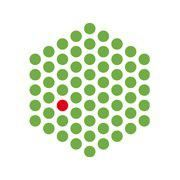 Data-driven modelling of intercellular interactions in the tumour microenvironment
Data-driven modelling of intercellular interactions in the tumour microenvironment
Date: 25 January 2023 @ 09:00 - 17:00
Monocyte-derived macrophages help maintain tissue homeostasis and defend the organism against pathogens. In tumours, recent studies have uncovered complex macrophage populations, including tumour-associated macrophages, which support tumorigenesis through cancer hallmarks such as immunosuppression, angiogenesis or matrix remodelling. In the case of chronic lymphocytic leukaemia, these macrophages are known as nurse-like cells and they protect leukemic cells from spontaneous apoptosis contributing to their chemoresistance. We propose an agent-based model of monocyte differentiation into nurse-like cells upon contact with leukemic B cells in vitro. We performed patient-specific model calibrations using cultures of peripheral blood mononuclear cells from patients. Using our model, we were able to reproduce temporal survival dynamics of cancer cells in a patient-specific manner and to identify patient groups related to distinct macrophage phenotypes. Our results show a potentially important role of phagocytosis in the polarization process of nurse-like cells and in promoting cancer cells' enhanced survival
About the speaker
Dr Vera Pancaldi was trained as a physicist and soon found her way in systems and computational biology. Since 2018 she leads a computational biology team at the Cancer Research Center of Toulouse(CRCT) working on modelling cancer and its interactions with the immune system.
Her main current focus is understanding the relationship between genome architecture and heterogeneity at various levels and relating heterogeneity in the phenotype of tumour infiltrating immune cells to patient's response to immunotherapy.
Keywords: Agent-based modelling, Macrophages, Tumorigenesis
Venue: ,
Organizer: European Bioinformatics Institute (EBI)
Target audience: Plant research, Plant research
Capacity: 500
Event types:
- Workshops and courses
Scientific topics: Computational biology, Personalised medicine, Oncology
Activity log

 EMBL-EBI
EMBL-EBI
